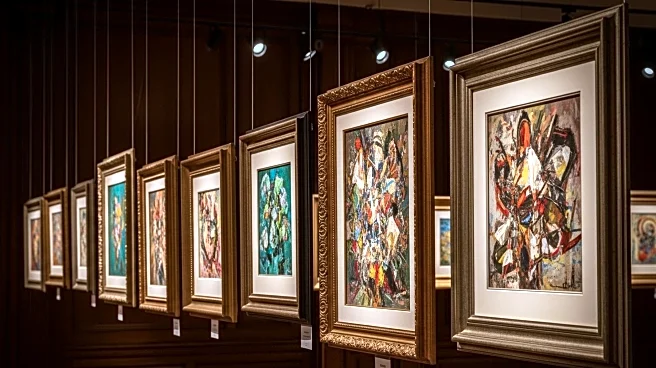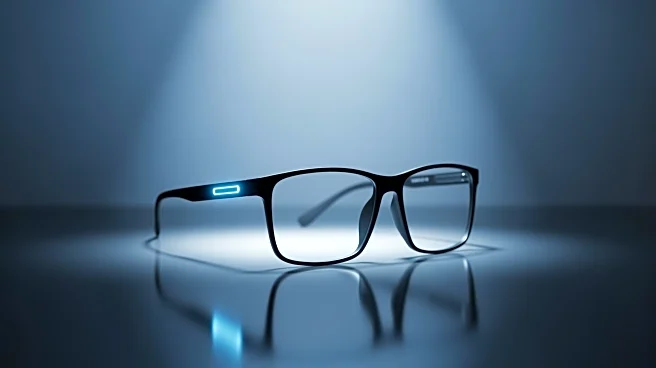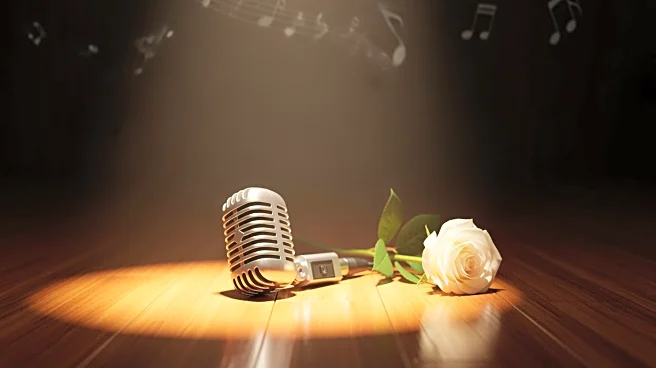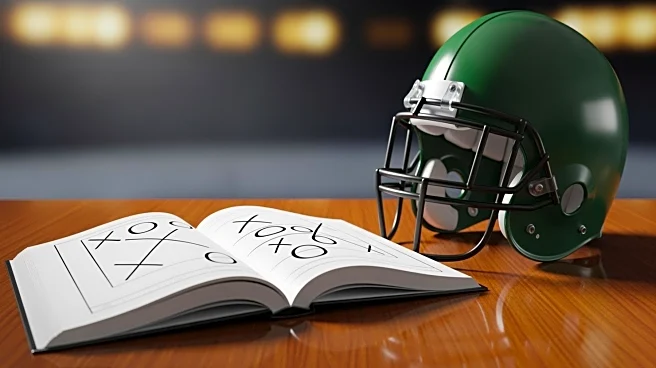What is the story about?
What's Happening?
Two paintings believed to be Nazi-looted artworks have been discovered at the Apple Tree Auction Center in Newark, Ohio. These paintings, attributed to Dutch floral still life painter Ambrosius Bosschaert, were part of the collection of Adolphe and Lucie Haas Schloss, a Jewish couple whose art was seized during World War II. The Monuments Men and Women Foundation, a nonprofit dedicated to recovering stolen art, received a tip about the paintings and confirmed their potential provenance. The artworks were found in an abandoned bank safe-deposit box in Texas, and if their identification is verified, they will be returned to the Schloss family's heirs. The paintings were listed for sale at relatively low prices before the auction house removed them from the online sale.
Why It's Important?
The discovery of these paintings highlights ongoing efforts to recover art looted during World War II, a significant issue in art restitution. The potential return of these works to the Schloss family represents a step towards justice for families whose cultural heritage was stolen by the Nazis. This case underscores the importance of provenance research and the role of organizations like the Monuments Men and Women Foundation in identifying and returning stolen art. The broader impact includes raising awareness about the thousands of artworks still missing and encouraging individuals to come forward with information about potentially looted items.
What's Next?
If the paintings' provenance is confirmed, they will be restituted to the Schloss family's heirs. The Monuments Men and Women Foundation continues to encourage individuals with knowledge of looted artworks to come forward, promising that law enforcement will not be involved in restitution efforts. This discovery may prompt further investigations into other artworks that were looted during the war and are currently in private collections or auction houses. The art community and legal experts may also engage in discussions about the ethical implications of art restitution and the responsibilities of auction houses in verifying the provenance of artworks.
Beyond the Headlines
The case of the Schloss paintings sheds light on the ethical and legal challenges surrounding art restitution. It raises questions about the responsibilities of auction houses and collectors in ensuring the provenance of artworks. Additionally, it highlights the cultural impact of returning stolen art to its rightful owners, restoring a piece of history and heritage to families affected by the atrocities of World War II. The ongoing search for looted art also reflects broader efforts to address historical injustices and promote cultural reconciliation.
















